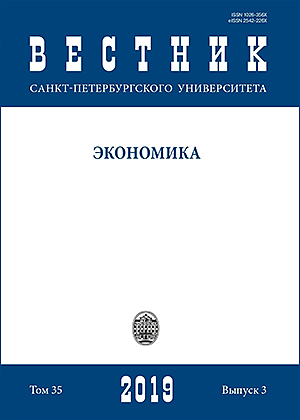Moral Economies: Possibilities for a New Framework of Economic Structure and Change
DOI:
https://doi.org/10.21638/spbu05.2019.301Аннотация
В статье рассматривается давний спор между дисциплинами социальных наук о том, что рыночная экономика и моральная экономика явно отличаются и даже противоречивы. Эта дискуссия так и не была решена и остается проблематичной, поскольку обе стороны не рассматривали ни конкурирующие требования, ни эмпирическую реальность с достаточной тщательностью. Автор предлагает обратиться к первоначальной дискуссии Скотта—Попкина еще раз, исследуя, являются ли объяснения моральной экономики и рыночной экономики взаимодополняющими, а не противоречивыми. Согласно его мнению, рыночная и моральная экономики, как явления, взаимосвязаны, и в рамках надлежащего подхода и обрамление (нормы), и решения (расчет) рассматриваются как часть области исследования. Агенты исторически формулировали моральную экономию норм, а также интересов, тем самым поддерживая рыночную и другие экономики. Автор предлагает три возможных варианта (возможности) будущей структуры моральной экономики: моральная экономика как преобразующая; моральная экономика как закрепленная в конкретных сущностях, а не как свободно плавающие нормы; и моральная экономика как множественная, встроенная в полевые контексты. Используя эти подходы к моральной экономике, в статье приводятся краткие примеры экономических преобразований, в которых задействованы не только интересы и рынки, но и моральные требования.
Ключевые слова:
моральная экономика, экономическое развитие, интересы, нормы, поля, экономическая история
Скачивания
Библиографические ссылки
References in Latin Alphabet
Загрузки
Опубликован
Как цитировать
Выпуск
Раздел
Лицензия
Статьи журнала «Вестник Санкт-Петербургского университета. Экономика» находятся в открытом доступе и распространяются в соответствии с условиями Лицензионного Договора с Санкт-Петербургским государственным университетом, который бесплатно предоставляет авторам неограниченное распространение и самостоятельное архивирование.






